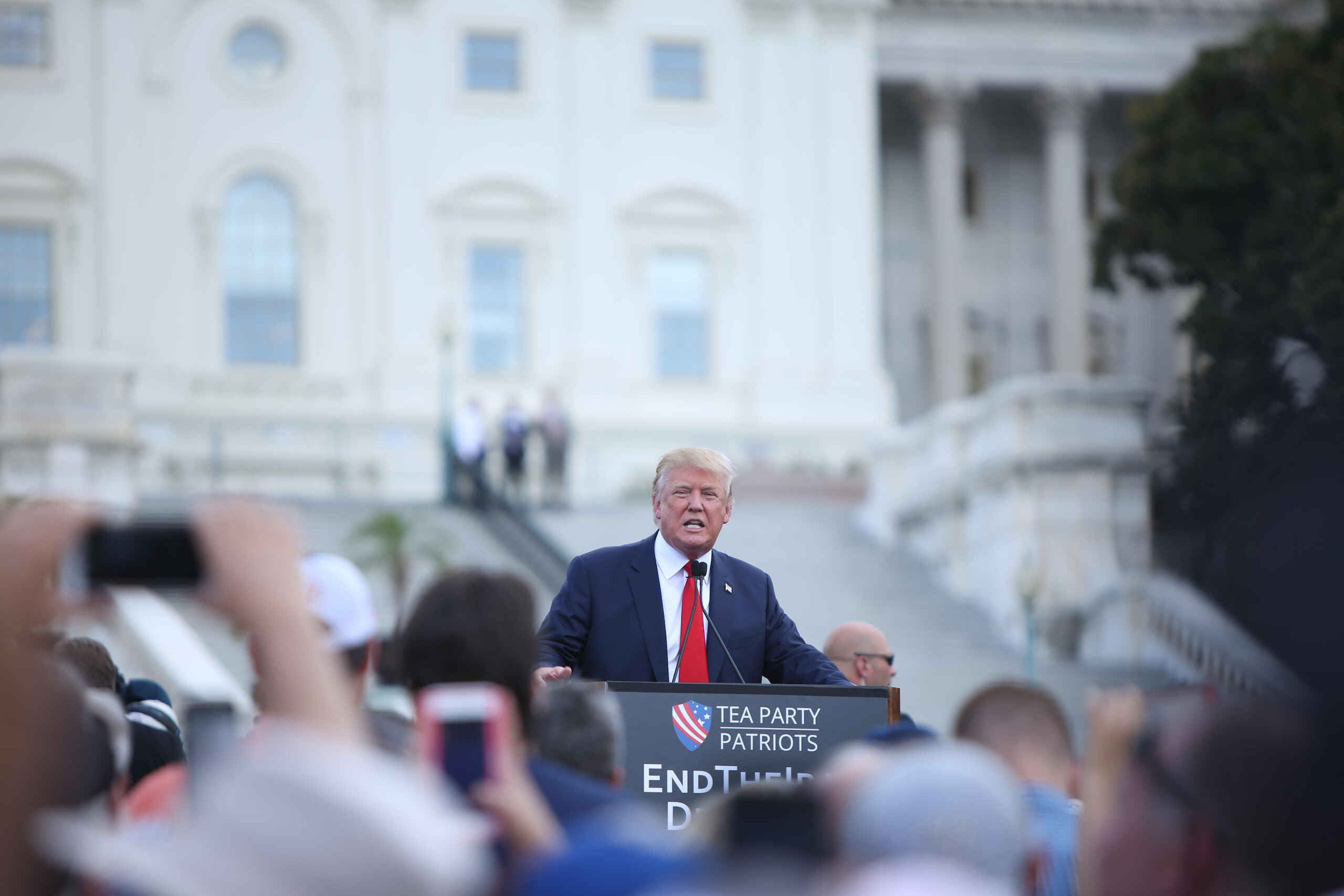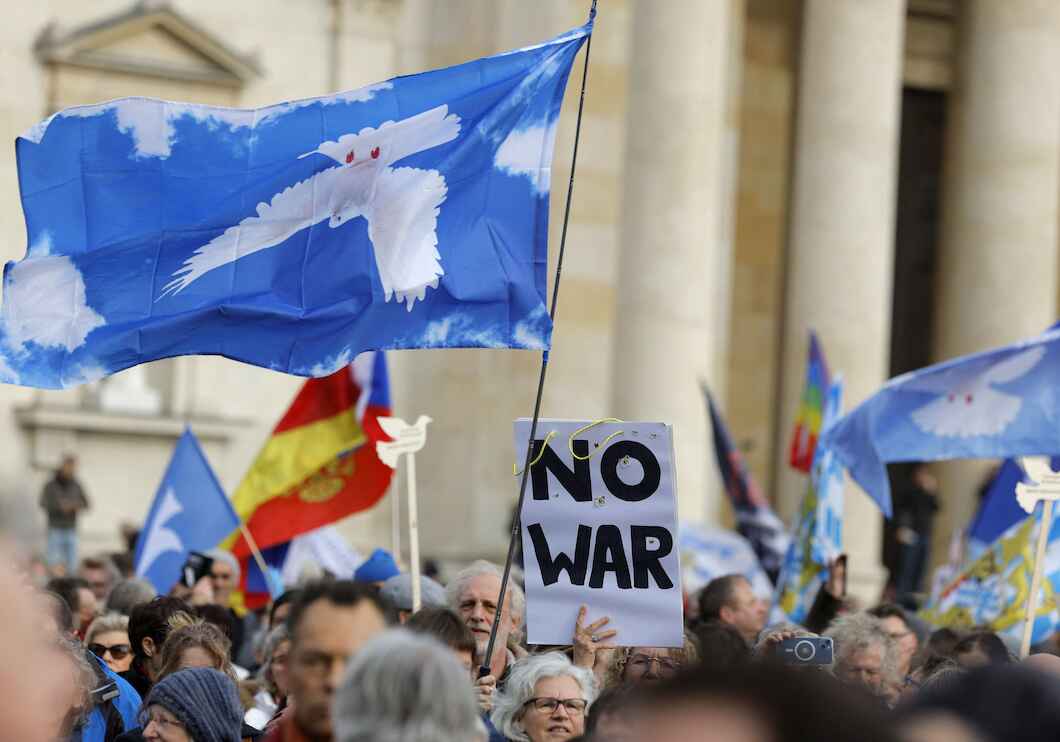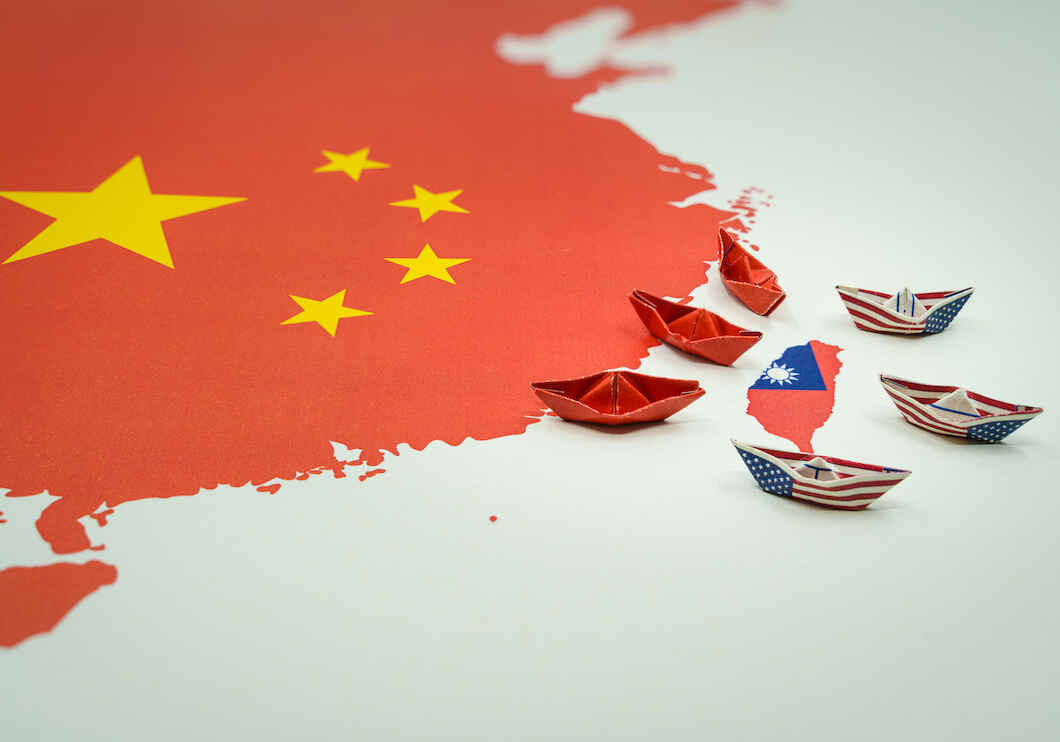
Foto: Alamy
Europe Home Alone–What if Trump returns?
Protectionism, domestic polarization and democratic backsliding put the United States’ leadership of the West into question during the Trump administration. While the Biden administration has improved transatlantic cooperation in several areas, serious concerns remain that this period is merely an “interregnum” in transatlantic relations. At the same time, Russia’s war against Ukraine and the ongoing challenge of China have highlighted Europe’s reliance on its partnership with the United States.
Against this backdrop, the Körber Policy Game brought together a small group of high-level participants from France, Germany, Poland and the United Kingdom to assess policy options for Europe in case of a significant shift in US domestic and foreign policy and a breakdown of democratic and transatlantic institutions. Which political, economic and security interests are at stake? And which policy options do European countries have at their disposal?
The discussions took place in a confidential setting in Berlin in June 2022 in cooperation with the Atlantic Council of the United States. The final report summarizes the insights and positions generated by the Körber Policy Game. Please note that it reflects the analysis of the authors and not necessarily that of the participants.
Executive Summary
What is Trump’s legacy in Europe?
Donald Trump’s presidency left Europeans grappling with the implications of his possible return to power. For the Polish team, a second Trump term would not necessarily signal the end of the West; if channelled properly, it could be a continuation of traditional Republican foreign policy priorities in line with Polish interests. While the British team would try to act as a bridge between Europe and the United States, the German and French teams expected a highly transactional and the end of a values-based relationship as well as limited possibilities to influence US policy, with no more “adults in the room”.
Can the United Kingdom and France step in and step up?
While the British team was willing to demonstrate leadership in European security after a potential US withdrawal from Europe, the French team stressed the importance of managing expectations of what could be achieved in the security realm. The French team would be concerned that it could not offer a nuclear deterrent that matched the credibility of the existing US one. For the Polish team, French commitments and capabilities were seen as not credible. If offered, Poland would seek bilateral security guarantees from the United States, even at the risk of undermining NATO, and negotiate access to US nuclear sharing.
“If Trump were to withdraw from NATO’s Eastern flank, the United Kingdom and France would have to fill the gap and invest more means into nuclear deterrence.”
Is Ukraine lost without US support?
The policy game revealed the centrality of the US role in European security – and in European unity. While the Polish and British team vowed to continue supporting Ukraine and taking a strong position on Russia, the German and French teams were particularly sceptical of their own ability to support Ukraine militarily and were unsure whether Europe could maintain pressure on Russia if the United States were to stop weapon supplies and partially lift sanctions.
“From the French perspective, keeping the EU together would be more important than relations with Russia and Ukraine.”
What if Russia attacks NATO territory?
A Russian attack on NATO territory – in this policy game, on Norway’s Svalbard island – would be a unifying moment for Europeans. Even if a second Trump administration did not fulfil its Article 5 obligations, Europeans would mobilize their capabilities to come to the aid of Norway and to help it reconquer Svalbard – if necessary, in a NATO-minus-one (that is, without the United States) framework. An attack on Svalbard was seen by European teams as manageable without the United States – unlike the war in Ukraine. However, the teams were divided on whether Western “horizontal escalation” in response to Russia’s attack on Norway – such as closing off the Baltic Sea and Kaliningrad – would be feasible or desirable.
“In a conflict with Russia and without the support of the US, Germany would have to rely on the UK’s and France’s nuclear capabilities.”
Alignment with Trump on China?
If pressed by another Trump administration, most Europeans would follow it in a more assertive policy towards China in return for US concessions on energy or trade. Germany, however, would be in a particularly difficult position due to its economic dependence on China. The economic impact on the United Kingdom would also be substantial. The French team would attempt to unite the EU around a joint China policy and use the EU’s leverage in trade issues to sway the United States.
“Confronted with the opportunity to conclude a bilateral security agreement with the United States in return for a more assertive China policy, Poland would accept the offer immediately, knowing full well that this might undermine NATO.”
Policy Recommendations
1. Use the Weimar Triangle to develop a joint approach towards a second Trump administration
To find a common stance towards a second Trump administration, Europeans should accept that perceptions of Trump’s first term differ in individual countries, especially in Central and Eastern Europe. Lessons learned from the first Trump term should be used for a deeper understanding of what Europe is dealing with and where interests align and diverge. This will help to set the stage for building contingency plans should Trump regain the presidency. A strong Weimar Triangle alliance of France, Germany and Poland within the EU could help prepare Europe for a potentially turbulent future and serve as a foundation for a coordinated strategy towards the United States.
2. Improve EU-UK cooperation on security and defence.
Establishing closer coordination between the United Kingdom and EU member states is crucial for improving European resilience in the face of possible attempts by a second Trump administration to blackmail Europeans with US security guarantees. A European Security Council, including the United Kingdom and the EU, could strengthen the European pillar in NATO and help partially shore up existing security gaps in the continent. Better integrating the United Kingdom into European security planning will not by itself insulate the continent from any possible future shocks, but drawing it closer today will help stabilize Europe in the future.
3. Plan for contingencies in Ukraine.
As early as possible, Europeans should draw up scenarios for how to support Ukraine militarily and financially as well as to uphold sanctions on Russia should a second Trump administration change the United States’ course. While understanding that European countries could not fill the gap in security support should the United States pull away from Ukraine, the EU ought to start strategizing over how it might leverage its financial resources to soften the blow, including making plans for a crash increase in its military capabilities.
4. Prevent bilateralism.
The war in Ukraine has exacerbated tensions and eroded trust between Central and Eastern European countries and Western European ones, posing stark dangers in the medium term. Trust needs to be restored to prevent the bilateralization of security relationships with the United States during a second Trump term, at the expense of NATO’s collective defence. The first step is to recognize that the problem is real and growing. The second is for Western countries to loudly and forcefully seize on opportunities to meet their front-line allies more than halfway in facing the Russian threat. Third, Western European countries should actively make the case as to why a bilateralization of security guarantees would leave everyone worse off – with volatile transactional security relationships instead of collective defence pledges.
5. Make strategic use of Europe’s economic strength.
Maintaining a strong stance towards Russia as well as leverage with a second Trump administration is only possible if Europe is in a strong economic position. It is therefore crucial for European countries to make their economies resilient against further shocks, to diversify their gas supply so as to reduce dependencies and to intensify trade and investment with partners other than China. This will decrease Europe’s vulnerabilities and enable more equal negotiations.
6. Develop independent security contingency plans for a post-US world.
European policymakers often recoil from planning for the eventuality of the United States abandoning the continent for fear of encouraging strategic drift in Washington. This misunderstands fundamental power realities in a world where demands on US attention are growing. Only resilient and energetic allies strengthen sustainable partnerships. Only a credible build-up of capabilities will help Europe stand its own ground. Thinking through scenarios and being prepared is a mark not of doubt about existing alliances but of responsible statesmanship.
Media and Downloads



